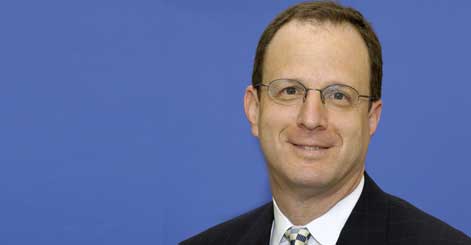The complexity of disputes involving engineering, procurement and construction (EPC) contracts was seen in the proceedings pitting New Athens Generating Company against Bechtel. New Athens hired Bechtel to construct a power plant in upstate New York that uses Siemens 501G combustion turbine generators. The dispute arose when construction finished several months behind schedule in 2004.
Bechtel sought more than $80 million from New Athens, claiming that delays and extra work resulted from force majeure weather events and technology risks associated with the Siemens turbines for which New Athens was responsible. New Athens blamed Bechtel for the late completion and sought counterclaims. The dispute led to five years of litigation and four separate arbitration proceedings dealing with each of the claims and counterclaims. The panel of arbitrators sided with New Athens, awarding the company $27 million in liquated damages due to Bechtel's late completion of the project.
New Athens was represented by Judah Lifschitz, the co-president of Shapiro, Lifschitz & Schram in Washington, D.C. Lifschitz has a broad litigation practice and boasts a strong record in construction and EPC cases.
Lawdragon: Regarding the New Athens/Bechtel case, what was Bechtel hired to do for the plant?
Judah Lifschitz: Bechtel was hired to act as the EPC contractor. Simply put, Bechtel was responsible for the design of the plant, the procurement of the equipment and the construction of the plant.
LD: Can you explain your client's position as to why the project's completion was delayed?
JL: As the arbitration panel found, the project was postponed due to Bechtel's inexcusable delays. These delays included Bechtel falling behind schedule from the very beginning of the construction effort, delays due to technology problems with the 501 G equipment - which Bechtel was contractually responsible for - Bechtel's failure to satisfy the water chemistry requirements, and Bechtel's delayed installation of all required equipment. The latter component included equipment that had to be redesigned and re-procured late in the project due to design errors by Bechtel.
LD: Given the complexity of the arbitration and the expense involved with the proceedings, why did the claims not settle? Were the parties ever close to a settlement?
JL: There was an initial mediation, which Bechtel summarily terminated. There was also a serious effort to settle immediately after the first trial. This effort ended when the panel issued its phase 1 decision. Thereafter, there were only limited efforts to settle.
LD: What were a few of the key reasons why your client was able to successfully defend against Bechtel's monetary claims?
JL: The facts of the case were the main reason that this defense was successful. The facts, as determined by the panel, were clear: Bechtel had assumed the technology risks as part of the negotiation of its EPC contract. Regarding the delays involved, the facts established that Bechtel was at fault for the projects very late completion.
LD: What about your success in seeking damages against Bechtel?
JL: The contract had express negotiated provisions for liquidated damages. The evidence convincingly established that Bechtel was responsible for the substantial delays in completion.
LD: How did you develop an expertise in power construction and EPC cases? What do you like about these cases?
JL: I am a product of the government contracts program at George Washington University Law School and have practiced construction law for 30 years. I have been involved in many highly complex ad technical cases including power plant projects. I love the complexity of these cases and mastering the technical disciplines necessary to try these cases.
LD: Does one need this type of expertise in order to take on a complex case like the Athens/Bechtel dispute? Do skilled litigators without the substantive background face a disadvantage?
JL: In my view, prior experience in complex construction matters is a must. There is no better teacher than experience. These cases are far too complex and there is far too much money involved for 'on the job training'.
LD: Why did you want to become a lawyer? I understand that your father was a lawyer. Can you talk about how he influenced you?
JL: My dad was a lawyer's lawyer who loved the practice. As for why I became a trial lawyer - I grew up on Perry Mason.


